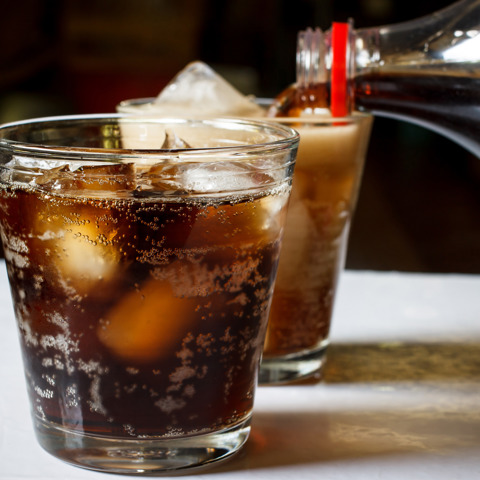
Sugary drinks sales cut across NHS hospitals in England
Sugar reduction campaign to cut down on obesity and type 2 diabetes across all hospitals in England.
Sales of sugary drinks are to be cut on the premises of every NHS hospital in England as part of NHS England action to slow down rising levels of obesity.
All 227 trusts across England have pledged to reduce sales of sugar-sweetened drinks to 10% or less of their total drinks sales.
Growing numbers of hospitals have signed up since NHS England introduced cash rewards for those that hit the target last year.
Being overweight or obese is one of the main risk factors for type 2 diabetes. Whilst type 2 diabetes can be prevented, or its onset delayed with healthy diet and lifestyle choices, the number of people living with the condition has doubled over the last 20 years.
Professor Jonathan Valabhji, National Clinical Director for Diabetes and Obesity, at NHS England said: “We have been clear that the growing obesity rates sweeping the country are a public health crisis. Obesity is associated with type 2 diabetes, heart attacks, many of the common forms of cancer, and a string of other illnesses.
“Our own sugar restrictions are delivering good results and as part of the long term plan we are exploring all potential options including very low calorie diets to tackle obesity and type 2 diabetes.”
The proportion of drinks with added sugar sold on NHS premises was reported to have gone down for seven months in a row - falling to just 7.4% in participating trusts by June 2018.
It is estimated that almost 30 million teaspoons of sugar have now been removed from NHS canteens, shops and vending machines as a result.
Simon Stevens, Chief Executive of NHS England said: “Every hospital in the country is now answering this important call to action and the NHS is rightly leading the way in battling the growing obesity epidemic across the country.
“Obesity and its associated dangers is a worrying challenge facing the NHS and so it is crucial, as we draw up a long term plan for the future of the NHS that we take action where we can to avoid a long list of preventable problems in the years ahead.”
With every hospital now signed up as part of the NHS England challenge to hospitals to meet these ambitious targets, it is hoped that sugar intake for patients, staff and families visiting hospitals will reduce even further.
In total, 14 leading national retailers operating from NHS premises including WH Smith, Boots, Marks & Spencer and Greggs, have signed up to the health drive to tackle the impact of the country’s expanding waistlines. In addition, 23 NHS Trusts and two retailers have decided to stop selling sugary drinks altogether.
The NHS is Europe’s largest employer, with more than 1.3 million staff in England alone. Around 700,000 of these are estimated to be overweight or obese, which has an impact on sickness absence and the NHS’ ability to give patients credible and effective advice about their health.
As part of action to improve the health of its workforce, NHS England has already provided an incentive for hospitals to limit confectionary sold in hospital canteens, stores, vending machines and other outlets.
Many drinks have been reformulated or removed to escape the additional charge on sugar in place since April 2018 as part of the government’s tax on soft drinks.
Find out more about type 2 diabetes
Support DRWF by making a donation here
Find out more about DRWF-funded research here
Find out more about DRWF fundraising here
For latest update follow DRWF on Facebook, Instagram and Twitter
To receive the charity’s latest bulletins as they become available, please sign up here
Read DRWF diabetes information leaflets here
I would like to make a regular donation of
I would like to make a single donation of
There are lots of ways to raise money to support
people living with all forms of diabetes.
Bake, Swim, Cycle, Fly ... Do It For DRWF!
Fundraise with us
Recent News


